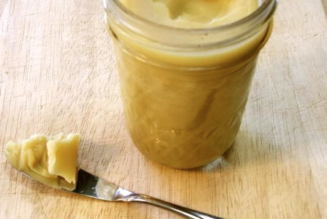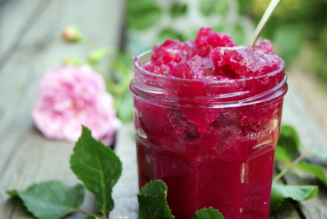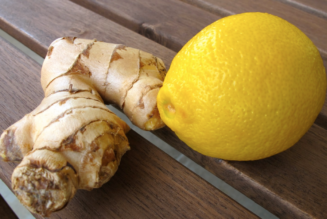Health Benefits Of Mustard Seed
When mentioning mustard, most of the western world will think of the delicious accompaniment to hot dogs and burgers. However the origins of the mustard seed are well documented with vast health benefits – when used correctly. There are over 40 varieties of mustard plants yet there are three main types that are used to make mustard seeds – black, brown and white. The black mustard seeds are the most pungent and the brown mustard seeds are usually used to make Dijon mustard. The white ones, which are actually yellow in color, are the most commonly used to make American yellow mustard as they are the mildest of the three.
Ayurvedic Cooking Essentials – Stimulate Your Digestive Fire
A common cooking spice, mustard seeds can be found in kitchens all over the world. These beautiful little seeds are a wonderful addition to savory dishes especially during the spring months. They have a pungent flavor and a heating quality that makes them particularly useful in home remedies to aid in colds and congestion. In addition to its stimulating effect on the lungs and digestion, it also contains important phytonutrients that have been studied for their anti-carcinogenic effects. Mustard seeds are also excellent sources of magnesium, selenium, phosphorus, copper, vitamin B1 and not to mention, omega-3 fatty acids! These nutrients have been shown to, amongst many health benefits, alleviate symptoms of rheumatoid arthritis, decrease asthma severity and even to help prevent cancer.
Pickled Mustard Seed
Mustard seeds work particularly well in cases of krumi (worm, parasites) and have carminative, analgesic and expectorant effects as well as rheumatic properties. This makes them very beneficial in cases of joint pain and breathing difficulties.
Kitchari Spice Kit Online
This kit provides all the basic supplies you need to make Kitchari for 7 days.
Properties
Mustard seeds are light, dry and penetrating with a pungent and bitter taste. They have a heating effect in the body and their post digestive effect is also pungent. They have a strong affinity for the digestive, respiratory and circulatory systems.
Some indications, amongst others, include:
- Low or weak/sluggish digestion
- Intestinal worms
- Asthma
- Bronchitis
- Pneumonia
- Pain and swelling
- Constitutional kapha conditions
- And many more!
It is important to be aware of some of the contraindications of using mustard seeds. It is advised against usage in inflammation and other high pitta conditions. Always seek a physician’s advice before undertaking herbal supplementation.
Usage
There are many combination compounds that involve Mustard seeds to address certain conditions. Some being:
- Mustard seeds with ginger, guduchi, pippali and black pepper for low digestive fire
- Mustard seeds with guggulu myrrh and frankincense for arthritis – particularly rheumatoid
- Mustard seeds with pippali, pushkaramoola, anthrapachaka for lung congestion
There are numerous recipes which use Mustard seeds and it is used abundantly in many savory dishes. A delicious way to experience the benefits of mustard seeds is in a cauliflower dish! This is a flavorful meal that can bring digestive ease in a soothing and delicious way!
~Mustard Seed Cauliflower Recipe~
Ingredients
- 1 head of cauliflower washed, stripped and chopped
- 1 tablespoon ghee
- 1 medium sized yellow onion chopped
- 1 tsp of chopped garlic
- 1 tsp of chopped ginger
- ½ cup of chopped cilantro
- 2 medium sized sweet potatoes chopped
- 1 cup kale
- 1 tsp coriander powdered
- 1 tsp garam masala
- ½ tsp hing
- 1 tsp mustard seeds (brown preferably)
- 1 tsp cumin seeds
- ½ tsp turmeric powder
- 1 tsp of salt (more or less can be adjusted according to taste/need)
Steps
- Sauté the onions, ginger, garlic and cilantro in the ghee in a large saucepan until they are soft and slightly browned
- Add the mustard seeds and cumin seeds and continue sautéing for a further 5 mins.
- Add the rest of the spices (turmeric, salt, coriander, hing and garam masala) and cook for a further 5-7 mins.
- Add the potatoes and stir well so that the mixture (tharka) covers all the chopped pieces. Cook for about 5-7 mins.
- Add the cauliflower and again stir well. Cook on medium-low heat until the potatoes and cauliflower are soft and can break apart with ease.
- Finally add the kale and stir into the vegetable dish. Let cook on low heat for a further 10 mins.
- Serve hot with a little ghee and a garnish of parsley. Enjoy with Paranthas!
- Other vegetables and herbs can also be added or replaced as desired.
References
- Lad, V. (1999). The complete book of Ayurvedic home remedies. New York: Three Rivers Press.
- Sharma, H. (2011). Ayurvedic Healing. Singing Dragon
- Lad, V. (2002). Textbook of Ayurveda. Albuquerque, N.M.: Ayurvedic Press.
- Lad, V., & Frawley, D. (1986). The yoga of herbs: An Ayurvedic guide to herbal medicine. Santa Fe, N.M.: Lotus Press.
- Pole, S. (2013). Ayurvedic medicine the principles of traditional practice. London: Singing Dragon.
- Green, J. (2000). The herbal medicine-makers’ handbook a home manual. Berkeley, Calif.: The Crossing Press.
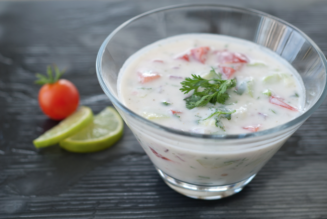
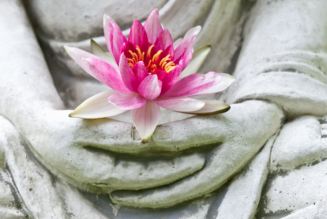
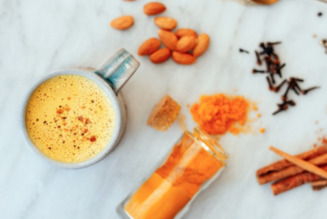
![Female Health: Amenorrhea [cessation of menses] – An Ayurvedic Perspective](https://healthyayurveda.com/wp-content/uploads/2015/07/1.-Amenorhea--327x219.png)

